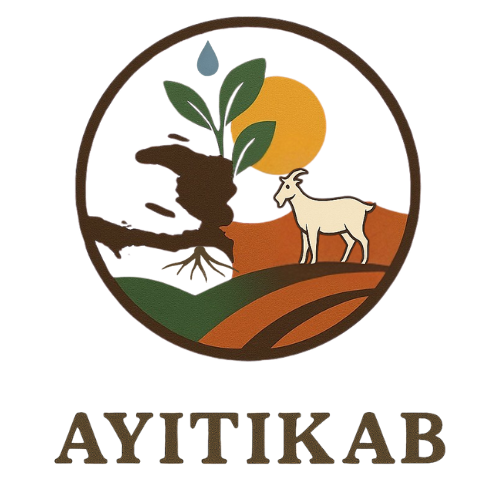Frequently Asked Questions
What is AYITIKAB?
AYITIKAB is a farming initiative in southern Haiti focused on restoring land and rebuilding food systems. We start with poultry, vegetables and citrus, but our mission is larger: to create farms that feed families, employ communities, and bring new life to the Haitian countryside.
Where is AYITIKAB located?
Our pilot site is in Paillant, in the southern region of Haiti. This is where we are beginning with poultry and orchard regeneration before expanding to other farms in the area.
How will my donation be used?
Every contribution goes directly toward farm startup needs: poultry housing, feed, water systems, tools, and the restoration of mandarin trees. We also invest in farmer training, solar power solutions, and community employment.
Is my donation tax-deductible?
At this time, AYITIKAB is not a U.S. 501(c)(3) nonprofit. Donations are not tax-deductible but are used transparently to build and sustain our operations in Haiti.
Why is AYITIKAB not a non-profit?
AYITIKAB is structured as a Haitian joint-stock company (S.A.) rather than a non-profit organization. This is intentional:
Long-term sustainability
Non-profits often depend on grants and donations that can fluctuate with politics and donor trends. Our communities in Paillant and beyond deserve consistency. A for-profit model allows us to generate revenue directly from food production and reinvest it locally—creating a self-sustaining cycle rather than relying on outside aid.Scalability and investment
Building decentralized farm hubs requires capital for land, infrastructure, feed, energy, and water systems. A company structure makes it possible to raise investment and debt financing in ways that a non-profit cannot. This unlocks growth beyond the limits of charitable fundraising.Ownership and accountability
As a Haitian-led company, AYITIKAB belongs to the very community it serves. Profits are not siphoned away—they are reinvested into expansion, wages, training, and community impact. Investors share in both the risk and the reward, holding us accountable to strong governance and results.Impact with profit, not charity
Food insecurity in Haiti is not a charity problem—it is an infrastructure and production problem. By standing as a business, we prove that Haitian farmers and agripreneurs can compete, build wealth, and shift the food economy on our own terms.
In short: We are not against non-profits; in fact, we partner with them. But AYITIKAB itself must be structured for resilience, investment, and Haitian ownership. That’s why we chose a business model—because food sovereignty requires more than goodwill, it requires a profitable, scalable engine that endures.
Can I visit the farm?
Yes. Sometime in 2026, we plan to host visitors and partners on-site. This will include tours of the farm, opportunities to meet the farmers, and ways to get directly involved in the work.
How can I support beyond donating?
You can spread the word by sharing our story, following AYITIKAB on Instagram, or connecting us with individuals and organizations who care about food systems and Haiti’s future.
What are the long-term goals of AYITIKAB?
Our vision goes beyond one farm. We aim to create a decentralized network of farms across southern Haiti, reinvest profits into schools and hospitals, and make agriculture a driver of renewal in the region.
Can I sponsor a specific project or tree?
Yes. Supporters can choose to directly sponsor the regeneration of mandarin trees, poultry flocks, or other farm projects. This allows you to see the tangible impact of your contribution and follow along as that part of the farm grows.

